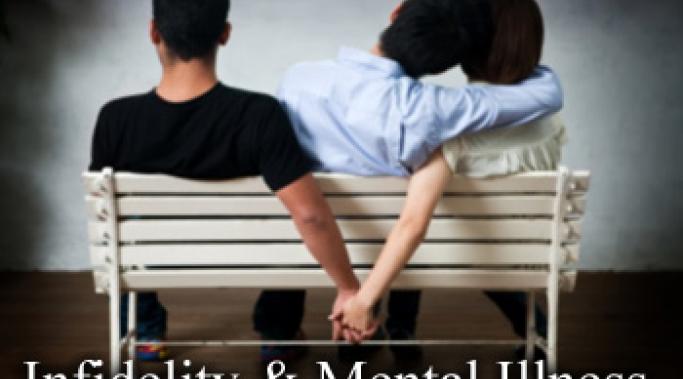Your struggle with mental illness can be a very hard topic to bring up. Even after years of practice, I struggle with exactly when to talk to people about my mental illness. Here are some lessons I have learned, and some tactics that have worked for me when considering bringing up my struggle with mental illness.
Dating Relationships
You know when you feel accomplished honoring commitments to yourself? Yesterday was one of those days for me: I wrote for a few hours in my local coffee shop; I did some grocery shopping and cooking; and I called by therapist and my psychiatrist for appointments. I was most pleased by making plans with my treatment team because I'd fallen off for a while and the calls made me feel like I was getting back on track. I'd also stopped going outside to write, so getting out of the house for a period of time was an accomplishment in itself. You may wonder, to what do I owe this burst of self-care energy and why did I honor these commitments to myself. Well, I did it for a man. (What?)
Forming healthy relationships isn't easy in mental illness recovery when I'm experiencing symptoms of my bipolar disorder because I'm known to behave badly. Well, not necessarily badly per se, but differently than I'd behave if I were completely healthy. At times, my behavior affects myself and at other times it affects forming healthy relationships with the people around me. These relationship mistakes have sometimes caused me to lose friends and alienate acquaintances. But when I work towards forming healthy relationships during mental illness recovery, it leads to greater understanding and better connections (Why Healthy Relationships Matter).
When there's infidelity and mental illness in a romantic relationship, it causes pain for both parties which is often irreparable. When infidelity and a mental illness collide, the fallout can cause the most harm to the person dealing with the disease. Whether one does the cheating or is cheated upon, managing the emotional damage of infidelity in a romantic relationship can be enough to cause or worsen a mental illness episode.
Mental illness stigma is probably most troubling within romantic relationships, because we believe that our partners should understand and support us more than anyone else in our lives. Many of us have likely experienced some form of mental illness stigma, be it from people that we know or from strangers who make assumptions about us based on our illness. There is more than one way that mental illness stigma affects romantic relationships.
Some people are anxious when starting a new relationship during mental illness recovery. They may wonder when they will be healthy enough to consider a new romantic relationship or even a first date. But there can be behavioral clues that tell you when its healthy for you to start a new relationship during mental illness recovery. I have experienced some of these during my recovery from various depressive episodes.
If you've been dating for a while, you might think it's time to tell your date about your mental illness. Figuring out what to tell a date about your mental illness might seem like a daunting task. You might believe that telling a date about your mental illness will alienate him or her. However, you can think about what to say before you have the conversation, and that will make things go more smoothly.
Many people don't know how to tell their partner about their mental illness. In many intimate relationships, the topic of mental illness is unlikely to come up in casual conversation. You may be starting a conversation with no idea how it will transpire, even though you hope that the results will be positive. Before you tell your partner about your mental illness, you should prepare for the conversation so that your emotions are protected regardless of the outcome.
I've written a lot about myself and my relationships on this blog, but now I'm turning to the tumultuous relationship of a public figure for my inspiration. Last week, we lost an icon, the incandescent Whitney Houston. Now, in her demise, the talk turns to her drug addictions and her relationship with ex-husband Bobby Brown.
When you are in treatment for a mental illness, you’ve likely undergone a certain amount of talk therapy. If you’re well into recovery, you may very well have experienced years of therapy and, hopefully, a measure of success at uncovering and eliminating negative patterns and gaining self-awareness. So, if you’ve walked the path to psychological enlightenment, disease management and overall mental health, can you have a romantic relationship with someone who’s never been in therapy?









